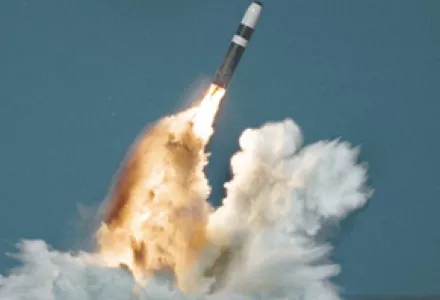Nuclear weapons have always been a serious but seemingly insoluble problem: while they’re obviously dangerous, they are also, apparently, necessary. Ward Wilson's work argues that five central arguments promoting nuclear weapons are, in essence, myths. Specifically:
- that nuclear weapons necessarily shock and awe opponents, including Japan at the end of World War II
- that nuclear deterrence is reliable in a crisis
- that destruction wins wars
- that the bomb has kept the peace for sixty-five years
- and that we can’t put the nuclear genie back in the bottle
Drawing on new information and the latest historical research, Wilson poses a fundamental challenge to the arguments on which nuclear weapons policy is currently built, arriving at a surprising conclusion: nuclear weapons are enormously dangerous, but don’t appear to be terribly useful. Why, he asks, would we want to keep technology that’s dangerous but not very useful?



